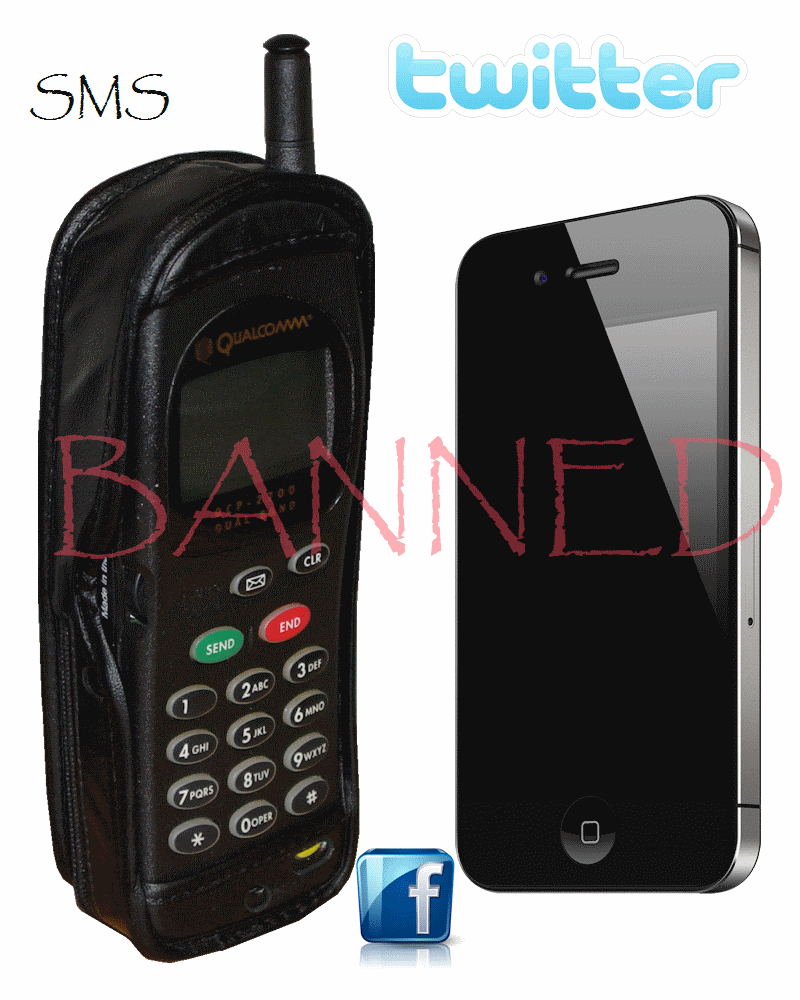If you are an active SMS user you are in trouble because of GOI’s censorship strategies. The government, in response to the mass exodus of north east people from major cities, has put a blanket ban on the bulk SMS for 15 days, citing that it would stop rumor mongering and help check the issue.
A Department Of Telecom circular issued to all network operators across the country states that
“(a) Block bulk SMS (more than 5) for the next 15 days in the entire country across all states/UTs
(b) Block Bulk MMS (More than 5) and all MMS with attachment more than 25 KB for the next 15 day in the entire country across all states/UTs.”
But will it really help? Are peer to peer SMS and MMS the most used ways of spreading rumors? Wouldn’t it cause more public nuisance than benefits?

A few others have understood it as not more than 5 smses form one phone number to another.
Then there comes the effectiveness of the ban w.r.t rumor spreading. While the ban will be able to curb the mobile to mobile SMS flow. But there has been no ruling regarding a ban on web to mobile SMS.
There are many sites which can be used to send bulk SMS and that too, free of cost. In fact sites like these are the most preferred way of telemarketers to send bulk SMSes. I bet tech savvy miscreants would still be able to spread rumors using the sites.
In addition to that, applications like WhatsApp and Nimbuzz (which come installed in pretty basic phones) can be utilized to easily send bulk messages.
As seen above anti social elements can easily override and mock the ban using the many available alternatives. Although the common public is sure to suffer. SMS being far cheaper than calls is the most preferred mode of mobile communication among today’s mobile generation, especially teenagers.
Many educational institutes and corporate houses also use it to communicate schedules and time tables with their respective students and employees. Apart from these, NGOs and social organizations also utilize bulk SMSes to gather public opinion and support on various issues.
Anna Hazare’s movement on Lokpal is an excellent example in this context when awareness was spread though mass SMS and social media. Greenpeace is a big time user of bulk messaging ,using it to convince people to sign petitions.
Most importantly bulk SMSes are also used for emergency services like Banking, Railways and Airlines to disseminate information. Although the DOT advisory says that SMSes pertaining to emergency services will be continued during the ban period.
Such antediluvian tactics by the govt. really showcase its short sighted attitude in resolving the core issue. Instead of banning the whole mode of communication it would have been better to use some snooping device to monitor the content of the SMSes and selectively banning the hatred messages. This would have also helped to trace down the culprits. There is also a talk of shutting down the service of social networking sites such as Facebook or Twitter.
But will it really solve the problem?
More effort should be put towards catching the culprits and putting more security in place to instill confidence among citizens. Such knee jerk decisions only result in more harm than good.
The latest news is that the government has opened a front against Social media, blocking some twitter accounts, supposedly spreading the hate content. But the blocking seems to be partial. The accounts blocked include those of journalists such as Kanchan Gupta (ex Associate Editor of The Pioneer,) and Shiv Aroor (deputy editor with Headlines Today news channel).
It seems using the excuse of the Assam tension, the government is also pursuing a long cherished agenda of Social media censorship, selectively blocking people who are exposing the bad deeds of the government.
These actions have actually annoyed the public and increased awareness about social media sites such as Twitter. Cutting the mass communication lines such as SMS and selectively censoring social media isn’t going to solve the problem.
It’s high time the government starts acting than reacting.
This incidence shows the seriousness of our government to solve ‘our’ problems.
So next time you send an SMS or tweet against the government, beware of the white collar goons.
For folks frustrated due to the ban, switch to WhatsApp.
P.S. w.e.f 23.08.2012 the SMS limit has been raised from 5 to 20, so you can send 15 more messages. A sensible decision, eh!
Writer is a NIT Hamirpur Alumnus working as a Software Engineer
Abhishek loves football, running and sometimes ideating. A Computer Science graduate from NIT Hamirpur, he currently makes a living by punching keys in a not so plush Bangalore office of a US software giant.
On weekends, most of the times you will find him sitting in front of the idiot box analyzing football games. One thing he does daily is that he misses his family, friends and Himachal
An avid technology enthusiast. A football fanatic. A forever Himachali.




this is impossible and if someone is planning like this, he is day dreaming. you cannot shut the voices and stop the running river. the anger against corruption, terrorism and misgovernance has to be tackled effectively through reforms and social media will not have much unrest then.